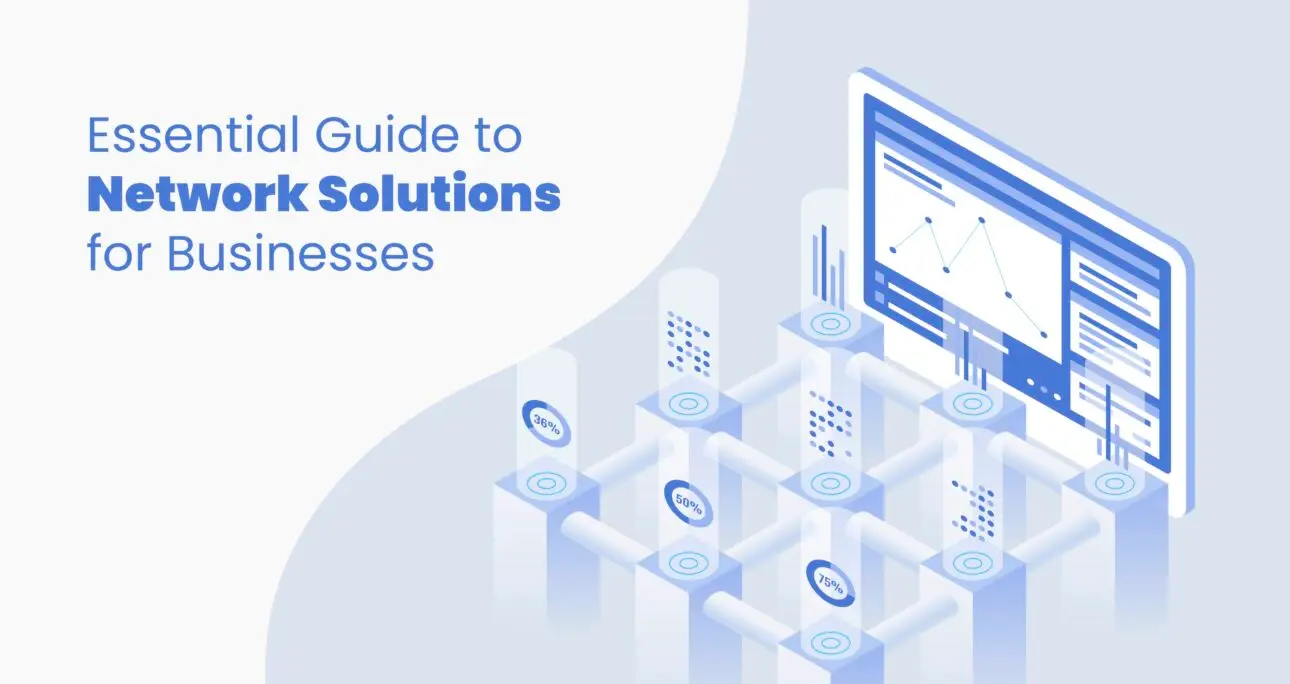The network of your company is like the core of your operations in the modern digital world. Whether you’re a small startup or a large enterprise, having a reliable and secure network is crucial for smooth operations. But what exactly are network solutions, and why are they so important? Let’s break it down in simple terms that everyone can understand.
Table of Contents
What Are Network Solutions?
At its core, network solutions refer to the various technologies, services, and products that help businesses connect their computers, devices, and systems. Think of it as the infrastructure that allows all your tech to “talk” to each other. This can include everything from wired and wireless connections to servers, routers, and firewalls.
Network solutions are designed to ensure that your business’s communication channels are reliable, fast, and secure. Without them, your emails wouldn’t send, your files wouldn’t share, and your employees wouldn’t be able to collaborate efficiently.
Why Are Network Solutions Important?
Assume your network to be a highway. You will experience slow performance if there are lots of vehicles and not enough lanes. At this point, if there is no control over traffic , accidents are expected. Network solutions handle this “traffic” to make sure that it moves smoothly and safely.
For businesses, this means:
Reliable Communication:
Ensuring that emails, video calls, and file sharing work without hiccups.
Security:
Protecting sensitive data from cyber threats.
Efficiency:
Streamlining operations by connecting all devices and systems efficiently.
Key Components of Network Solutions
To truly understand network solutions, it helps to know the key components that make them work.
Here are the basics:
1. Routers and Switches:
These are the devices that direct data traffic within your network. Routers connect different networks (like your office network to the internet), while switches connect devices within the same network (like computers and printers).
2. Firewalls:
Firewalls serve as security gatekeepers, monitoring and restricting incoming and outgoing network traffic according to established security criteria. Think of it as the security guard that checks everyone entering or leaving your office.
3. Servers:
Servers store, process, and manage network data. They can host websites, manage emails, or store files. Your business may have its own servers on-site, or you might use cloud-based servers.
4. Wireless Networks:
Wi-Fi networks allow devices to connect without physical cables. Ensuring your wireless network is secure and reliable is critical, especially in a business environment where mobile devices are common.
5. Network Security:
Network security is about avoiding unauthorized access to your network and ensuring that only authorized users have access to sensitive information.
Common Network Solutions for Businesses
The size and nature of your business will determine your network requirements.
Here are some common network solutions that businesses use:
1. Local Area Network (LAN):
This is the most basic type of network, connecting computers within a small area like an office. It’s essential for sharing resources, like files and printers.
2. Virtual Private Network (VPN):
A VPN creates a secure connection over the internet, allowing employees to access your business network remotely as if they were in the office.
3. Cloud Networking:
This involves using cloud-based services for networking needs. Cloud networking is scalable and flexible, making it ideal for businesses that are growing or have multiple locations.
4. Unified Communications:
This kind of solution combines many communication tools ( such as voice, video, and texting) into a single system, which makes it easier for employees to interact.
Choosing the Right Network Solution
Selecting the right network solution company depends on several factors:
Business Size: Smaller businesses might only need a basic LAN, while larger enterprises may require more complex solutions like VPNs or cloud networking.
Budget: Network solutions can range from affordable basic setups to more expensive advanced systems.
Security Needs: If your business handles sensitive information, investing in robust security measures is crucial.
It’s often best to consult with a professional IT service provider to assess your specific needs and design a network solution that fits your business.
Maintaining Your Network
Once your network is up and running, ongoing maintenance is essential.
This includes:
Regular Updates: Keeping your hardware and software up-to-date to protect against vulnerabilities.
Monitoring: Continuously monitoring network performance to detect and resolve issues before they cause disruptions.
Security Audits: Regularly checking your security protocols to ensure your network remains protected against emerging threats.
Conclusion
Network solutions are vital to the smooth operation of any modern business. a suitable network solution can make or break your company’s productivity and security if allowing interactions and working together to protecting sensitive data . By understanding the basics and working with a trusted IT provider, you can ensure your network is robust, reliable, and ready to support your business’s growth.


